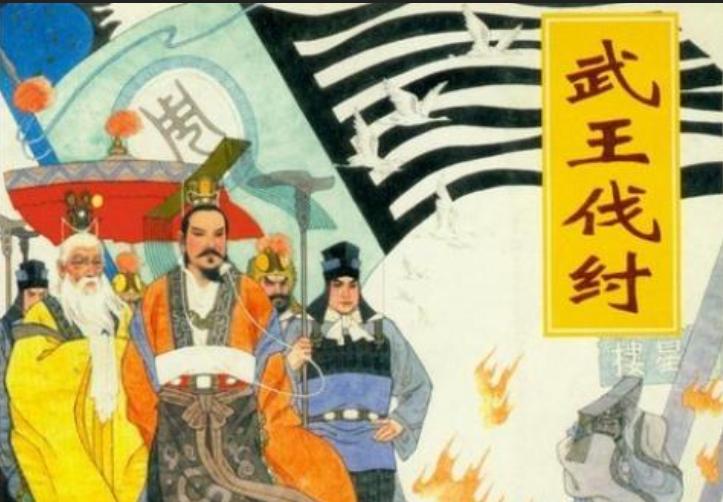After quelling the rebellion jointly launched by the Three Prisons, Wu Geng, and Dongyi, in the face of a world of ruins and waiting to be revived, Zhou Gongdan needed to find a way to eliminate contradictions and maintain long-term peace and stability, at this time these problems were in front of the wheel of history, if the Zhou Dynasty could not step over, then their success could only be short-lived:
First of all, although Wu Geng had been killed and the Yin capital had been razed to the ground, after more than seven hundred years of rule, the roots of the Shang Dynasty had been deeply rooted in the soil east of Sanmenxia, and a large number of Yin Shang clans were still distributed in the vast land outside the Yin Capital, although at this time they were obedient and obedient in front of the powerful Zhou army, but in the future, if the situation changed, these Shang Dynasty remnants still had the ability to start a rebellion. King Wu of Zhou was still worried after the success of the cutting, because "Wei Tianjian Yin, Que Zheng Tianmin, three hundred and sixty husbands, Fu Gu, also did not perish." Use it today. (To the effect that when the Shang Dynasty was founded, there were three hundred and sixty sages, although their descendants had disobeyed the Mandate of Heaven, but they still had not perished, and continued until now) The subsequent rebellion proved that King Wu's worries were not superfluous, and after the Zhou Gongding Rebellion, although these Remnants of the Shang Dynasty suffered a blow, the Zhou people probably could not suppress them all, and they would still become the "Sword of Damocles" above the head of the Dynasty for a long time.

Second, in the two major battles of the Wu Dynasty and the Zhou Gongding Rebellion, the Army of the Zhou People over the Shang Dynasty was a "coalition army", which included both the residents of Zhou Yuan, as well as the Qiang people surnamed Jiang surnamed Qiang, headed by Jiang Ziya (Shi Shangfu), who had long intermarried with the Zhou people, and the troops sent by the "Yong, Shu, Qiang, Qi, Wei, Lu, Peng, Pu" and other tribes. After the complete victory of the Allied forces over the Shang Dynasty, has completed its historical mission, will the Coalition forces continue to unite under the banner of the Zhou people as in the past? They saw the vast wealth and territory of the Shang Dynasty, could they recognize Zhou Tianzi's distribution of post-war benefits? Guan Shuxian, Cai Shudu, and Huo Shu were brothers of King Wu of Zhou, and they all fought against King Cheng of Zhou and Gongdan in order to compete for the right to inherit after King Wu's death, and wouldn't it be very likely that the other allies would challenge the authority of the Zhou Dynasty in order to compete for interests in the future?
Third, although the most powerful enemy, the Shang Dynasty, had fallen, there were other enemies around the territory of the new Zhou Dynasty, for example, in the Rebellion of the Three Prisons, the Dongyi states colluded with Wu Geng, causing no small trouble to the Zhou Dynasty in the east. When Zhou Gongdan pacified Dongyi, he adopted peace with the small state of Dongyi and concentrated on attacking the eastern Yi powers such as Xiang, Bogu (Pugu), and Fengbo, which had the advantage of quickly quelling the Dongyi rebellion, but left many small countries in the land of Dongyi, and the friendship between these small countries and the Zhou Dynasty was not strong, and it was still a hidden danger to the future of the dynasty.
The contradiction between the Zhou people and the remnants of the Yin merchants, the contradictions within the Zhou people, and the contradictions between the Zhou Dynasty and the external foreign races are the root causes of the rebellion of the Three Prisons, and Zhou Gongdan, as the helmsman of the Zhou Dynasty, must find a way to completely eliminate these three contradictions, otherwise the war will never stop one day, and sooner or later the Zhou people will lose everything they have gained in a larger rebellion.
Zhou Gongdan and the founding fathers of the Zhou Dynasty must have thought hard about it, and finally they came up with their own solution - the sub-feudal system.